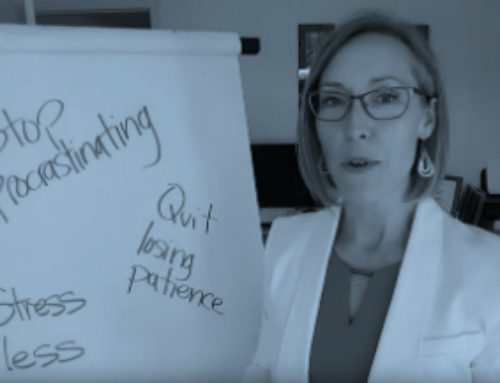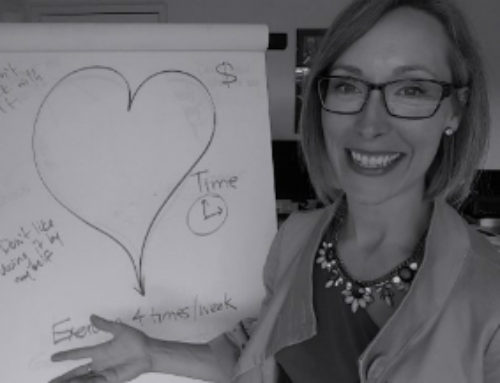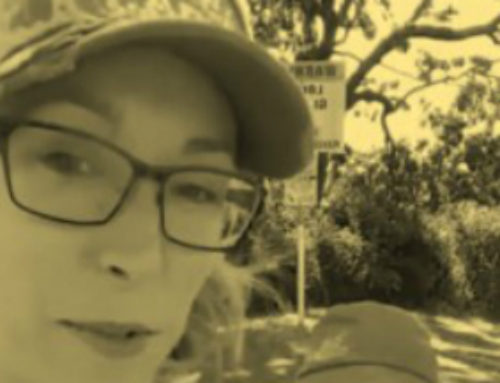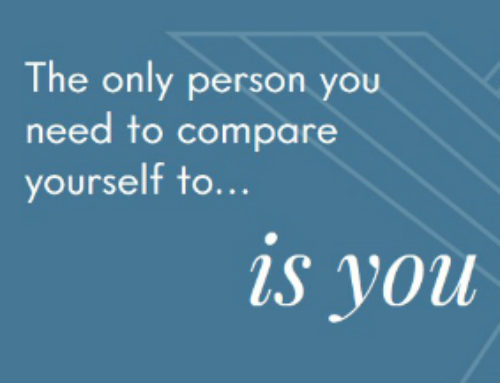Keep your eyes on your goals, just as you should keep your eyes on the road.
Can you believe we’re already seven days into the New Year?
Many of you are likely still hard at your resolutions while others may have already broken theirs.
If you’re like me, you may be just beginning to think about what you want to accomplish in 2015.
When I set goals, I like to take time to reflect, think, and plan.
I have found that the following questions help me build excellent goals that I actually achieve.
What do you want?
Write your ideas down.
This is very important: make sure they’re things you want, and not things you don’t want.
My long-time school bus driver, Mr. Branson, taught me that when your vehicle goes out of control, look where you want to go, not where you don’t want to go.
He shared that if you look at the ditch or say, “Don’t hit the ditch”, sure enough, you’ll end up in the ditch.
If you look down the road or say, “Stay on the road”, that’s where you’ll go.
A similar principle applies here.
The mind will guide you to its point of focus. Losing weight is a popular goal for many.
If you don’t want extra weight, think instead about what you do want to have. Toned abs and biceps? Perfect blood pressure? A 28-inch waist? Smooth skin? A tight, high butt?
Think of something tangible that your mind can home in on.
Why do you want it?
After knowing what you want, this question really makes that goal stick.
Ask yourself, “Why is this important?”
Then ask again, “Why is that so important to me?”
Repeat it four, five, or even six times, going deeper each time to get to your core motivation.
You can read more about finding your motivation here.
How would you know if you got it?
This question helps you to refine your goal and makes it concrete and specific.
If your goal is to have toned abs, how would you know when those abs are toned enough?
When you can do 100 sit ups without stopping?
When you see a six pack in a mirror when you put on your bikini for the summer season?
Make it specific, measurable, achievable, realistic, and time-bound: SMART.
How might you start doing it?
You don’t need to go big right at the beginning.
Instead, find ways to take tiny steps each and every day toward your goal.
If your goal is to exercise for 1 hour every day, start by exercising for only 10 minutes each day for one week.
Then increase it to 15 minutes each day the next week.
Then 20 minutes the week after that, and so on until you’ve hit your goal of 1 hour’s exercise every day.
By using this method, there is a good chance that you will make exercise a habit—something so automatic that you do it without thinking.
Research shows that in order to make something a habit, it takes an average of 66 days.
It could take less time, or it could take longer.
Stick with your new healthy habits, and they will stick with you!
What things might get in your way?
This is contingency planning.
We know that sometimes life happens and keeps us from our best intentions.
For example, if you want to exercise outdoors, rainy weather might deter you.
List all of the things that can get in your way (including the ways you can get in your own way), and then plan strategies for how you’ll address each and every one of them.
When you know about how you’ll deal with obstacles ahead of time, it becomes a snap to leap over that hurdle when it arrives.
How can you celebrate?
Think of ways you’ll celebrate your progress and wins along the way.
Set milestones and when you hit them, rock out to the awesomeness that you are.
I love to celebrate by splurging on a bottle of champagne, or making a special dinner, or bragging to my husband while doing a happy dance.
Answer all of these questions as fully and completely as you can and you’ll be well on your way to having a stunning 2015.




